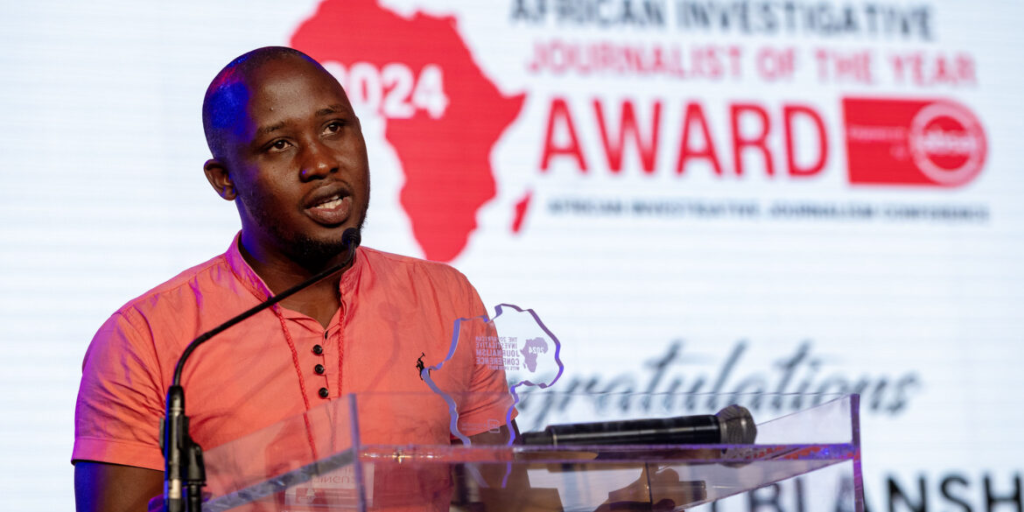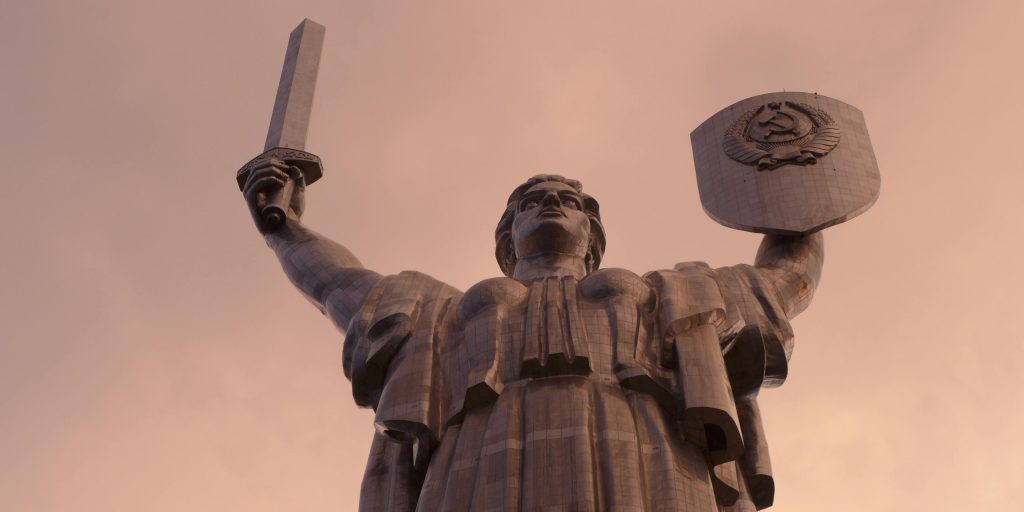Uganda’s Blanshe Musinguzi wins African Investigative Journalist of the Year Award
Stuart Dickinson
African Investigative Journalism Conference
Blanshe Musinguzi, writing for the Africa Report, took top honours at the second annual African Investigative Journalist of the Year Award for his far-reaching and impactful investigation into the smuggling of precious Congolese hardwoods through East Africa.
The investigation, ‘How Congo Trees are smuggled through East Africa‘, was developed through the support of the Pulitzer Centre and the Rainforest Investigations Network (RIN).
‘It’s a story featuring great investigative research on the ground, persistence and courage in a dangerous part of our continent, as well as profound reporting
‘It is also an accessible and well-written report, an often-overlooked component of journalism,’ said convenor of judges Gwen Lister at the gala awards ceremony held in Johannesburg on 31 October.
The investigation follows the illicit processing and export of valuable timber from its origin in the Democratic Republic of the Congo to different countries around the world.
‘It’s also a story with great environmental impact, uncovering the people and companies behind widespread criminal activity with negative repercussions in many regions across Africa,’ said Lister.
In a heartfelt acceptance speech, Musinguzi spoke of growing up in rural western Uganda and how fortunate he was to have been able to go to school – something which his mother was never able to do.
‘Even now if you ask her, “what does your son do?”, she would not be able to tell you. She was able to provide me with my fees and send me to school, but she could not read my report cards.
‘When I went to secondary school, my classmates’ parents were teachers and doctors and so on, and they would come to visit their children, but no one could come to visit me – they couldn’t. So from a very young age, I learnt to take things seriously. This award goes to all of us, and it’s an encouragement that we continue to do good work’

The runner-up award went to a team of Ghanaian journalists – Manasseh Azure Awuni, Adwoa Adobea-Owusu and Evans Aziamor-Mensah – for their series of investigations titled, ‘The GH₵ 3 Billion Lie‘, which revealed the creation of parasitic companies used to siphon off taxpayers’ monies in the oil sector.
‘Judges were impressed by the quality of information, the high level of sourcing and the comprehensive editing of the piece,’ said Lister, who acknowledged the high standard of this year’s entries.
Produced for Open Secrets and published in the Daily Maverick, the ‘Russian Doll’ series by Hennie van Vuuren took third place at the awards. This was a story which the judges said featured impressive investigative work and courage in looking deeply into the assassination of South African Colonel Frans Mathipa and mysterious arrival of Russian vessel Lady R when it docked in South Africa’s Simon’s Town.
‘As we celebrate the best among us and acknowledge their challenges and fortitude in producing prize-winning work, I’d like to take a moment to acknowledge all of you who have made your way to Wits University for these awards,’ said Director of the Wits Centre for Journalism, Dr Dinesh Balliah.
‘You are one of more than 450 delegates at the 2024 conference and hail from over 55 countries at last count. That is incredible reach for the stories coming out of AIJC and for the work that you produce and will continue producing. I am certain that many of you are future winners of this award, and I look forward celebrating you on this stage’
Trailblazing marketer and Hall of Fame global African branding authority Dr Thebe Ikalafeng delivered the keynote address, encouraging journalists on the continent to reclaim their narrative as Africans, taking pride in their culture and language as they tell the crucial stories of the continent.
- The African Investigative Journalism awards are held annually to recognise and celebrate excellence in investigative journalism on the continent. The awards are part of the African Investigative Journalism Conference, hosted the Wits Centre for Journalism. This year’s awards attracted 158 entries with 61 from women journalists




